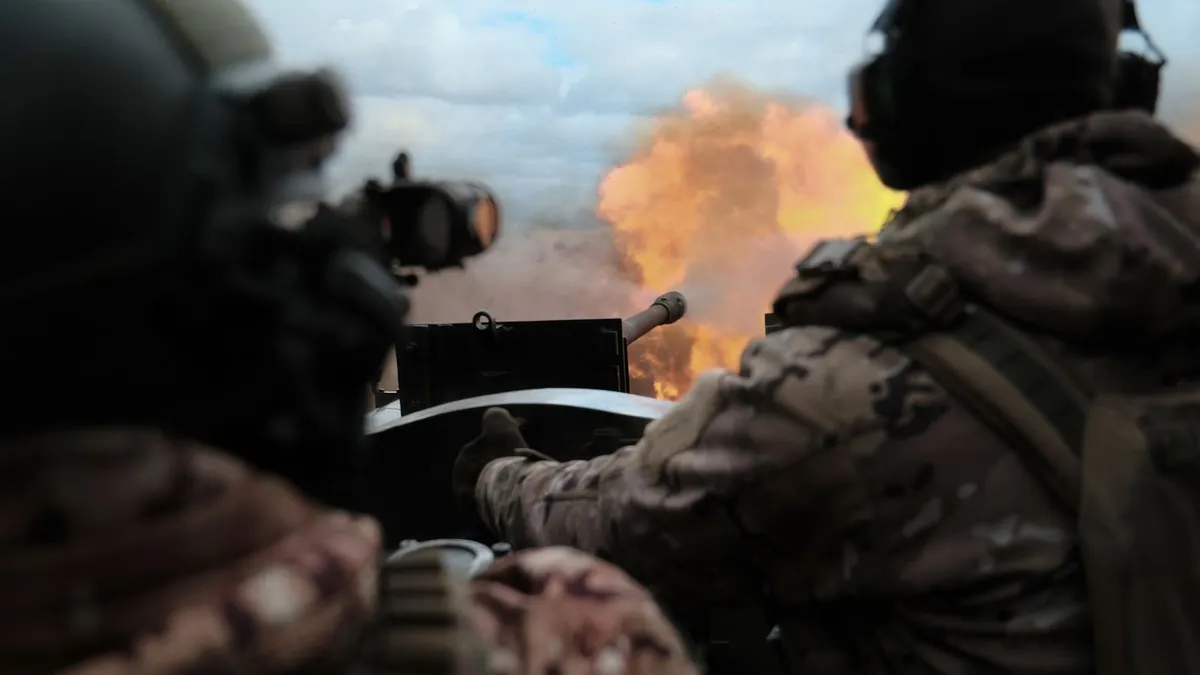
In a significant development, President Donald Trump on Monday decisively reversed a hold on weapons shipments to Ukraine. According to a report from the Wall Street Journal, Trump informed his Ukrainian counterpart, President Volodymyr Zelensky, that he had not actually ordered the freeze on military assistance. This clarification comes in the wake of a suspension that had raised concerns among military and diplomatic circles.
The suspension of weapons shipments arose after Trump requested Defense Secretary Pete Hegseth to take stock of the Patriot air defenses and other critical U.S. supplies. An adviser who spoke with Axios indicated that it was Hegseth, alongside Undersecretary of Defense for Policy Elbridge Colby, who advocated for the pause in military support. This moment marks a pivotal point for Colby, who has been vocal about the need for strategic prioritization, particularly focusing on elevating the Indo-Pacific and enhancing Taiwan's defense at the expense of other regions.
During his confirmation hearing in March, Colby cautioned senators about the U.S. military's preparedness, stating that the nation lacks a multi-war military capability. He also expressed hesitation in directly naming Russia as the invader of Ukraine, highlighting the sensitive diplomatic landscape that the U.S. navigates. This strategic approach underscores the complexities involved in military support decisions.
Despite the complexities, Trump has shown a reluctance to attribute blame to Russia or to escalate military support for Ukraine. Reports from Axios suggest that Trump expressed concerns to aides that sending arms to Kyiv could entangle him in what he referred to as "my war." Nevertheless, Trump's frustration with Russian leader Vladimir Putin appears to be growing. In a recent Cabinet meeting, he stated, "We get a lot of bullshit thrown at us by Putin... He's very nice all the time, but it turns out to be meaningless."
The Pentagon's arms holdup was officially attributed to a comprehensive review of American military support worldwide. Sean Parnell, a Pentagon spokesperson, emphasized that for several years—particularly during the Biden administration—there had been a lack of consideration regarding the inventory of weapons and munitions provided. Former national security adviser Jake Sullivan has since challenged this perspective in an essay featured in the New York Times.
Moreover, some of Ukraine’s military needs align with those of U.S. troops stationed abroad, especially in the Middle East, where a significant engagement involving Patriot systems recently occurred at Al Udeid Air Base in Qatar. As the situation continues to evolve, it remains uncertain which other nations will be affected by the administration's ongoing review.
For instance, the State Department authorized a potential $510 million sale to Israel at the end of June, while Washington has also been working to strengthen Taiwan’s defenses. The implications of these actions indicate a broader strategy in U.S. foreign policy, emphasizing the importance of maintaining robust military support in critical regions.
In summary, it is imperative that security assistance continues to flow to Ukraine to compel Putin to engage in negotiations, as highlighted by Sen. Jeanne Shaheen (D-N.H.), the ranking member of the Foreign Relations Committee. Unfortunately, the recent decision to halt arms shipments has sent a counterproductive message, raising questions about the future of U.S. military support in the region.